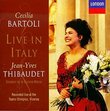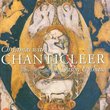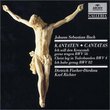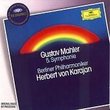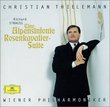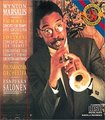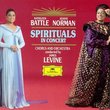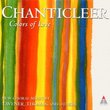Move over, Rudolf
Paul Bubny | Maplewood, NJ United States | 07/28/2007
(5 out of 5 stars)
"Thirty years after Rudolf Kempe completed his massive survey of Richard Strauss' orchestral music, a conductor not previously associated with this composer has produced a similarly large-scale compendium of Strauss' tone poems and lesser-known concertante works (7 CDs, originally issued separately). As has been pointed out elsewhere, the Kempe series encompasses several items that are not part of the Zinman series, and the reverse is also true: Zinman includes "Four Last Songs" where Kempe does not, for example. Aside from completeness, how does Zinman's cycle compare to Kempe's? Quite well, although there is no question of Zinman trying to reproduce what Kempe did a couple of generations ago. For one thing, there's a different purpose in this newer series. Zinman evidently aims to rediscover these (mostly) familiar works by emphasizing linear clarity over opulent sonorities; Kempe pretty much was informed by the Strauss tradition he had inherited. Although both Kempe and Zinman take a lighter-textured approach than, say, Karajan, Strauss as performed by the Staatskapelle Dresden can't help but take on a golden tone. The Zurich Tonhalle Orchestra produces a decidely leaner sound, although this is partly offset by the lush sonics Arte Nova's engineers produce--far superior to what EMI's engineers gave Kempe and Co. in the 1970s.
In fact, I'd go so far as to call the Zinman series not only a worthy successor to the Kempe, but perhaps even a replacement for it. Kempe partisans may consider these fighting words, but for all of Kempe's insight into Strauss' music born of lifelong familiarity, there was frequently something strait-laced about his conducting of these opulent scores, to their detriment. My estimation of the Kempe cycle has slipped since 2002, when I wrote an enthusiastic review of it on this site, and now I find that Zinman often allows the music's essential character to come through more positively. So "Ein Heldenleben," for example, presents a heroic demeanor, nonetheless free of bombast, that the older recording lacks. "Don Quixote" here receives one of the best-characterized AND most cohesive performances ever recorded, even without the help of a superstar cellist such as Rostropovich or Tortelier. While on the subject of outstanding work by lesser-known soloists, "Four Last Songs" as sung by Melanie Diener is less a showcase for the soprano voice than a cycle of meditations on fulfilled old age and impending death. Diener's voice is as supple as they come, but she uses this ability to express the meaning of the words rather than stage a fireworks show. Accordingly, Zinman scales down the accompaniment, so that it's plain we're listening to a work in Strauss' late style, not a junior version of "Eine Alpensinfonie" (which, at the other end of the spectrum, blows its 20 horns for all they're worth).
In shor, there's not a dull patch in this set, and while it might not be to the taste of every Straussian, it should serve the listener who wants a fresh perspective.
"
Zinman's Strauss
Eric S. Kim | Southern California | 03/31/2006
(5 out of 5 stars)
"Although I own Zinman's Strauss works on single discs, I'm certain that this box set is pretty much the same thing. David Zinman is as outstanding as the late Rudolf Kempe: he handles Richard Strauss' masterful tone poems magnificently. Every note is taken under direct precision, and there is no overblowing whatsoever. The Tonhalle Orchestra Zurich gives out spectacular emotion in almost every piece. The soloists, especially Melanie Diener as the soprano for "Four Last Songs", do a fine job and play their parts with clarity. As for the sound quality, it is most excellent when it comes to volume and beauty.
Each tone poem strikes me like lightning. Ein Alpensinfonie, Macbeth, Metamorphosen, & Tod Und Verklarung are very powerful to listen to. Aus Italien, Don Quixote, Don Juan, & Sinfonia Domestica have pure dynamism. Also Sprach Zarathustra, Oboenkonzert, Parergon, Vier Letzte Lieder, & Festliches Präludium are at their finest when it comes to Zinman's conducting. To know the rest is to listen to them straight through.
I highly recommend this box set to anyone who is starting to have a keen fascination with Richard Strauss. It is low-priced for seven discs, and the brilliant performances from the Tonhalle Orchestra will just dazzle you completely. Also, try the Rudolf Kempe renditions with the Staatskapelle Dresden: they're either on EMI Classics or on Brilliant Classics.
"
Thankfully, a re-issue of a set that compares with Kempe/Dre
Bryan Leech | Melbourne, VIC, Australia | 07/23/2009
(5 out of 5 stars)
"I reviewed the initial release of this boxed set which was issued in 2003. BMG (under their Arte Nova label) have seen the wisdom of quickly re-issuing the set as it is the only one that can be compared with the 70s Dresden/Kempe collection. I reviewed that initial release, and such is the worth of this set, I am repeating that review for this re-issue.
You will notice the lack of the word "complete" in the title of this boxed set, and not all the included works fit the title. The "Four Last Songs" don't match the title, but personally, I will listen to this set of orchestral Lieder anytime; this is one of Strauss' finest works. And the Op 7 Serenade in E flat for 13 wind instruments is an anomaly.
It appears that there is no complete set available, although there have been traversals of Strass' works which have been released in single volumes at a time. You may be able to assemble all issues in such a set, but I doubt they would cover all works, and, as far as I can find, these releases are not recent.
If you are after a representative collection of the Orchestral works of Strauss, there are only two choices: this 7-disc set, recorded and released individually between 2000-20002, then as a boxed set in 2003, (that issue has now been discontinued, but BMG under their subsidiary Arte Nova label saw the wisdom to re-issue it in 2006, so I am placing that review here as well); and a 9-disc set with the Dresden Orchestra under Kempe, made back, as I recall, in the 70s (unfortunately, as I understand, no longer available). Kempe and his musicians produced a top-class series, superbly played, recorded with analog technology, and the sound stood up up well to the transfer to CD. At the time of their release they were hailed both for the standard of performance and recording quality, with particular comment on the standard of the Dresden players.
However, if you want a modern recording, you will not be let down by this set. The track listing of the 2003 release was full of errors, omitting some works, so I will append a list of works at the end of this review, just in case that hasn't been corrected.
We are so taken by the "name" orchestras, that many have not noticed that the overall standard of performance from many modern well-known orchestras is not quite what it was a few decades ago. There is such an emphasis on technical standards, and producers frequently fear to allow a slightly different reading in case it doesn't sell, that many modern recordings are of high technical standard, but a degree of musicality has been lost. Meanwhile, in Europe, there are quite a few orchestras that have risen to quite high standards AND not lost touch with musicality.
The Tonhalle Orchestra Zurich is one such ensemble, and under Zinman have produced a set of Strauss works well able to stand up against the old Kempe recordings. It would take too long to discuss each work: suffice to say this is a well-chosen collection of superbly interpreted and played works, recorded with very high-quality, full-bodied, rounded sound. As an example, the huge orchestral demands of the Alpine Symphony (among the best performances available) place no strain on the quality of the recorded sound. The set has been giving me much pleasure and in the time I have been listening to it I am finding that Zinman's readings are more clearly defined than Kempe's, and the wider dynamic range of the CD format allows him to give better expression to the dynamics of the compositions. So I am pleased to be able to give this set a very definite thumbs up in all aspects. You can probably hunt and find individual performances of each work that you think marginally better. But that is a lot of hunting for small gains. It is a close call between this and the Dresden set, but after some listening, this is the choice for me. And it is such a bargain, with no compromises in any department. So I can recommend the set without reservation.
Works on the 7 quite well-filled discs: (1) Aus Italien Op 16, Macbeth Op 23; (2) Ein Heldenleben Op 49, Tod and Verklarung Op 24; (3) Don Juan Op 20, Till Eulenspiegel's lustige Streiche Op 28, Also Sprach Zarathustra Op 39; (4) Ein Alpensinfonie Op64, Festliches Präludium Op 61; (5)Metamorphosen AV 142, Vier letzte Lieder AV 150, Oboe Concerto in D maj AV 144; (6) Sinfonia Domestica Op 53, Parergon Op 73: (7) Don Quixote Op 35, Romance in F maj for 'cello and orchestra AV 75; Serenade in E flat maj for 13 wind instruments Op 7.
"
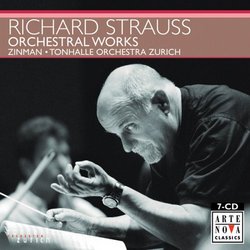

 Track Listings (7) - Disc #1
Track Listings (7) - Disc #1